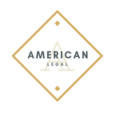Trademark Lawyer
Trademarks are the legal protection of a word, symbol, phrase, logo or design, or any combination of these things that represent a good or service. There are five main categories of trademarks to discuss, and they differ in many ways.
There is the “generic mark” or generic trademark which does not qualify for a trademark unless it’s more specific to detail. The phrase “ice cream shop” is a generic mark, but it does not restrict other shops that would sell ice cream from having that phrase in their name or on their slogan. Therefore, it’s considered “generic” and to be for free use for all ice cream shops. To qualify for a trademark, it would need to be about a specific type of ice cream or something that differentiates it from other shops that sell ice cream.
A descriptive mark is an identifier for one or more characteristics of a product and service, but only serves as a descriptor for the product. There are unique elements in play here that qualify it for protection under trademark laws, such as having a secondary meaning. One such example of a trademark that would be purely descriptive is “cold and creamy” for an ice cream brand. Other ice cream brands could use this trademark, as it describes their item they are selling. Most often these marks cannot be protected in full, unless it has a secondary meaning such as the amount and manner of advertising, volume or sales, length and manner of the mark’s use or the results of a consumer survey. So consumers must recognize the brand and identify it with the mark in question.
A suggestive mark means something is implied by the good or the service. Marks in this category qualify for protection without having a secondary meaning. The term “suggestive” implies the consumer has to use their imagination to figure out what type of service or goods the seller offers. This could be the luxury automotive brand Jaguar. A jaguar implies speed and agility but does not immediately give you the image of a car manufacturer.
A fanciful mark is the term, name or logo that is different from everything else that exists. This means this trademark does not have anything else similar to it, or is different enough from existing trademarks that it can be trademarked of its own accord. Some such trademarks are Kodak, Nike, Adidas. The words don’t hold meaning in the English language, so trademarking does not infringe on companies that produce similar products.
An arbitrary mark means the trademark uses a term or phrase that is well known, but the meaning is different. A very popular case is Apple, the computer and electronics manufacturer. An apple, like you would eat, is very familiar to many people. However, many people hear you speak about Apple and know that you mean the electronics developer.
Last but not least is a service mark, which is the same as a trademark, but is exclusively for companies that provide service instead of producing goods. A service mark falls under the legal trademark laws and must be registered. If you are uncertain of what mark law your trademark falls under, reach out to a trademark lawyer such as the ones available at Kaplan Law Practice, LLC. Trademarks can be confusing, understanding the different types of trademarks can be even more confusing. But a lawyer who deals with trademarks day in and day out will be able to help you.
